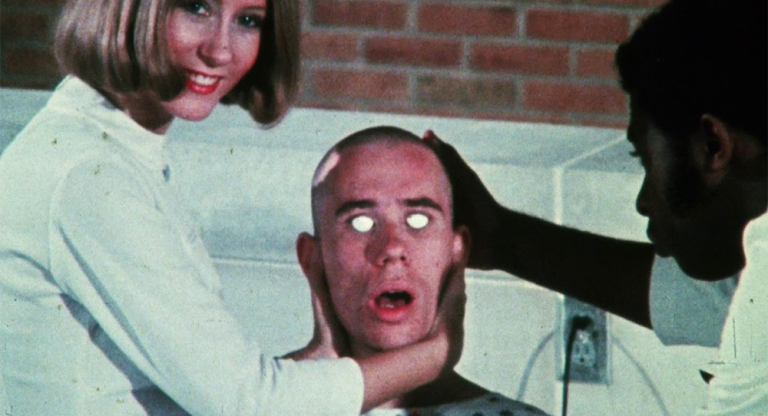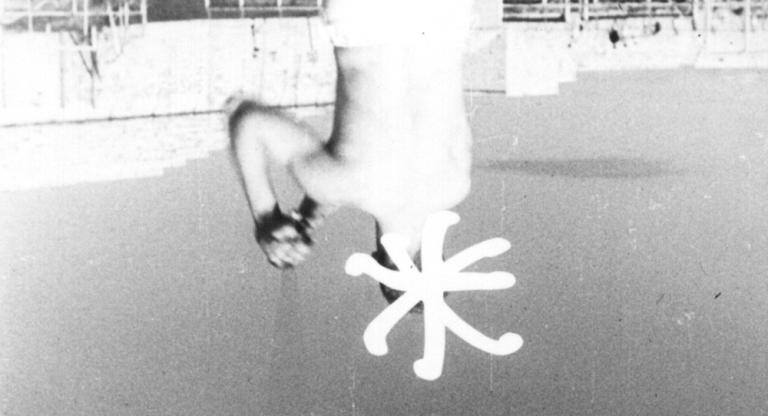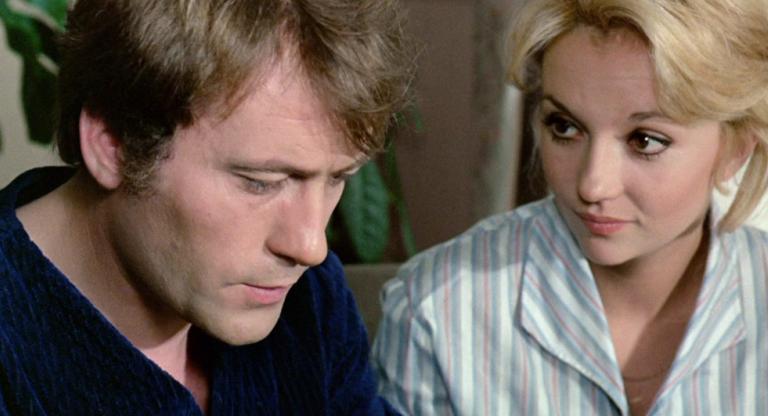Danish-Palestinian director Mahdi Fleifel’s To a Land Unknown (2024) resembles John Schlesinger’s Midnight Cowboy (1969) in how it explores the desperate lengths society’s most abject will go to in order to escape their circumstances. The film even ends on a tragic bus ride toward the promised land that hits a very similar emotional and narrative note as Hoffman and Voight’s did. In the case of Fleifel’s film, however, there is an important and immediate political dimension to the story that makes it not only a sensitive film about the connection between two men, but also a mirror that reflects the grim reality of many Palestinian exiles.
Chatila (Mahmood Bakri) and Reda (Aram Sabbah) are two Palestinian cousins who have emigrated to Greece. In order to make enough money to get out of Athens and into Germany, they purse-nap and commit petty theft, with Reda also turning tricks. Chatila’s wife and son are in a camp, and while he’s desperately trying to do whatever he can to get to Northern Europe, where his fortunes might be better, he’s also struggling to keep his cousin off drugs. The men encounter an orphaned Palestinian boy, and when Reda blows the money they’ve saved on heroin, Chatila hatches a plan to have the boy smuggled into Italy for a price in order to make enough money to secure themselves passports. But when this plan falls apart, Chatila devises a more extreme scheme that involves betraying men just like them.
To a Land Unknown is a film about the realities of the displaced and just how vulnerable they are in a country where their status is considered illegal. We see members of the Palestinian diaspora in Athens, living communally with barely enough food and very little hope of employment or social advancement. But beyond this stark picture of Palestinian émigré life, Fleifel’s film is a low level crime drama. There’s a slickness and lean menace to the film, a certain kind of youthful edge. It’s also shot gorgeously and gracefully, and features a minimalist score that sounds like it’s from a Michael Mann movie, but with the volume knob turned way down to provide another level of cool. Chatila and Reda aren’t the stereotypical, angelic immigrants of less nuanced fare; instead, they skateboard, do drugs, seduce women, and, in Chatila’s case, forget their son's birthday. These characterizations and this genre edge helps refocus what could be a rather expected issue film about the plight of migrants into something more dynamic that’s colored by idiosyncrasies and moral imperfections.
At a pivotal moment, the film’s most nefarious and detestable character, Abu Love (Mouataz Alshaltouh), a drug pusher and would-be poet, recites a poem by Mahmoud Darwish. All we’ve seen from Abu thus far is him helping Reda relapse on heroin, but putting the words of Darwish, Palestine’s national poet, into the mouth of a pariah like Abu is itself poetically and thematically significant. Poetic words of freedom recited by a wretch help emphasize the murky moral and ethical waters Fleifel’s film is willing to wade into to make its point about the darker, more complex corners of the soul, and where persecution and deprivation might push anyone.
To a Land Unknown screens this evening, July 9, at BAM as part of the series “Contemporary Arab Cinema 2025.” It will also have a weeklong run at The Quad starting on Friday, July 11.



